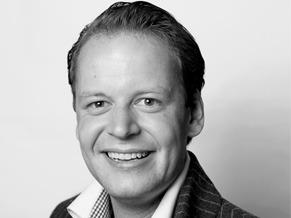Alexandra Auer
The intangible consequenses of physical walls
Walls have been our direct response to threat for centuries and over the last 20 years the global desire for walls has been growing. We have more border barriers now, in the age of internet and globalisation, than at the end of the second world war. But the effects of walls on societies go far beyond protection: Walls separate by establishing an “us” and a “them”; they make us build a mental wall. The talk focuses on the link between physical and mental walls, and shows an example on how to overcome the mental barrier again.
Andrea Maier
After her medical studies in Germany she moved via the Leiden University Medical Center to the Vrije Universiteit Amsterdam where she, at 33 years, became the youngest professor of Internal Medicine ever to be inaugurated in the Netherlands. Beyond practicing science with her @Age group, she is known as the authority on ageing. She has written the popular book Eeuwig houdbaar and has made TV appearances on, among others, Zomergasten.
Aukje Kuypers
Aukje Kuypers is the 4th generation in the family business P.G. Kuypers, which builds, maintains and designs technical installations in buildings. The company was founded in Helmond and currently has more than 1000 employees. Growing up in the family business it was not long before she took her first steps in to management. Aukje currently functions as the CEO of Kuypers and was elected businesswoman of the year 2018.
Babah Tarawally
Let’s make humanity great again
“Let’s make humanity great again” was the focus for Babah Tarawally, Journalist and Writer. He was open-minded as he shared his story “packed like sardines at age 4, fleeing from home”. He shared his painful past, with “black and white thinking” over growing up at asylum centers, and challenges that he faced integrating into the western world, especially without the right-papers. Lessons from his grandmother on Ubuntu, that “it takes a village to raise a child”. He urges everyone to talk to everyone, to create a positive spiralling effect on building communities.
Don Ceder
A new way to deal with debt
If there's one thing thing Don Ceder has realized working as a lawyer for people who struggle with debts and poverty it's this: it’s really expensive to be poor. In this talk, he shares some of his personal experiences and points out that a lot of money is being made from people who basically don't have it through additional costs. He furthermore speaks on emerging scientific findings that show how poverty deeply affects behavior and decision-making and explains how basically anyone can help a person that is struggling with debts and help them transfer to financial self-reliance.
Jos de Jong
The power of staff engagement
Living in a world where the job market is in turmoil, how do we create engagement with our staff? The lack of people with specific skills acts as a serious brake on further growth of our economy, not only in hospitality, but any other industry. This talk gives insights how to make the connection with your team, to get them onboard, and make sure you are prepared for the long-term future.
Marietje Schaake
Why people should govern surveillance technology and not the other way around
The market in surveillance technologies is assisting repression of human rights worldwide. At the same time, the business models of social media and search platforms are eroding the public debate in democracies, while oversight over algorithms is lacking. To turn the tables, and for people to govern technologies and not the other way around, engineers, business developers, politicians and internet users need to rise, now.
Peter vandermeersch
To deal with fake news media we have to look at ourselves
How to prepare for the infocalypse of fakenews. Why the public should be the watchdogs of the media.
Stefanie Jansen
Stefanie Jansen is a child psychologist currently working as an independent CoCreator. During her psychology studies and her career at kids market research agency IPM KidWise, she was thoroughly trained in uncovering consumer insight. In 2007, Stefanie left IPM KidWise to become self-employed. Since then, she has gradually expanded her expertise from market research to co-creation, and has applied this to all kinds of organizations – including publishers, counties, NGO’s, retailers, and FMCG concerns. Convinced that any challenge can and should be solved in co-creation with everyone it matters to, she co-founded TheCoCreators and co-authored the book The 7 Principles of Complete Co-creation (Cocreatie Revolutie in Dutch).
